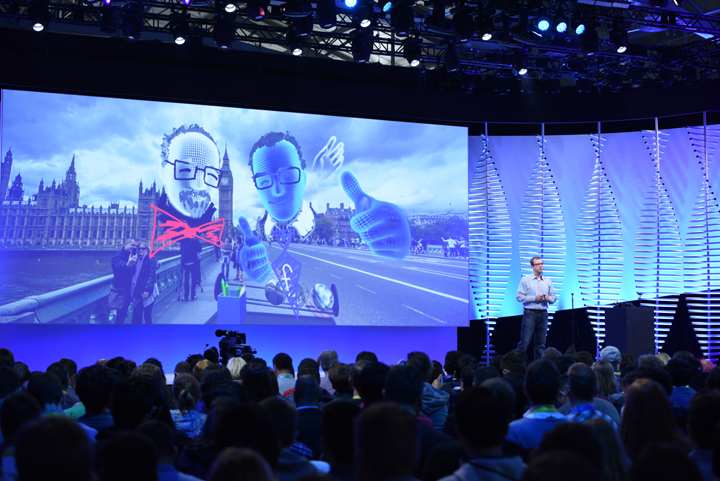Facebook CEO Mark Zuckerberg showed off the future of Facebook this week during the company’s annual F8 developer’s conference.

And while the conference may be aimed at those working on Facebook’s platform, there were many announcements about new features that the average user will want to know about – from chatbots that will try to sell you products on Messenger, to virtual reality tourism.
Here is a look at some of the things Facebook announced during the conference:
Bots for Messenger
Messenger users will soon be able to order flowers, shop for shoes and talk with a variety of businesses by sending them direct text messages.
Facebook is joining several tech companies working to promote the use of intelligent software programs known as “chatbots,” which let businesses interact with customers in conversational language.
Microsoft recently announced a similar effort with its Skype service, but Facebook’s software appears to be further along.
Facebook already has more than 30 companies signed up to deploy chatbots on Messenger, including CNN, eBay, Burger King and Bank of America in the U.S. It’s unclear when the feature will deploy to Canadian users.
READ MORE: How to access the hidden Facebook inbox you might not know about
“We think you should just be able to message a business the same way that you message a friend,” Zuckerberg said.
Facebook is also making it easier for individuals to contact businesses by searching for their bots within Messenger or clicking on an ad in Facebook’s regular news stream. But vice-president David Marcus said the company wants to be careful not to annoy users by filling the Messenger app with unsolicited spam.
Facebook is testing a program that charges businesses for the opportunity to send a “sponsored message,” but they’ll only be able to contact people who are existing customers or have already messaged the business, Marcus said.
But don’t worry – you’ll be able to block future messages from a business at any time.
Save links for later
This is a handy update for anyone who likes to read news or shop on Facebook. A newly released “save” button will allow users to save articles, products and videos in a private list on Facebook that only you can access from your device.
The feature will also remind you about things you’ve saved – for example, if it’s a product and it goes on sale, Facebook will let you know you.
Automatic tagging for videos
Facebook is also working on artificial intelligence technology that would automatically tag people in videos. Facebook already uses technology that recognizes faces in pictures to suggest tags, but applying that to videos would be much more complicated.
Could virtual reality tourism be coming soon?
During chief technology officer Mike Schroepfer’s keynote, Facebook offered a glimpse into the future of virtual reality.
Wearing an Oculus VR headset, Schroepfer met another Oculus wearer in a remote location where the two were able to immerse themselves in a major tourist hub – London, England.
Both users were then able to explore a 360-degree view of a static photo of London, across from Big Ben. They even snapped a selfie using a selfie-stick.
The video was meant to show the potential for a local tour guide to give virtual reality tours to users all over the world, without having to leave their homes.
Still betting big on live video
Facebook is also releasing tools for developers to build apps that work with its services, including software for streaming video from drones and other gadgets. The company showed off a special camera – dubbed Facebook Surround – designed to take “immersive” 360-degree video.
Chief product officer Chris Cox said the camera won’t be sold to consumers, but will share its designs to encourage other firms to find new uses for 360-degree video.
Facebook has been focusing more on video in hopes of competing against Twitter, SnapChat, YouTube and other rivals vying to serve video-hungry viewers.
– With files from The Associated Press
- High benzene levels detected near Ontario First Nation for weeks, residents report sickness
- Ontario takes action against chemical plant after Aamjiwnaang First Nation residents fell ill
- Enter at your own risk: New home security camera aims paintballs at intruders
- Fishing vessel with crane, net arrives in Zeballos for orca calf rescue




Comments